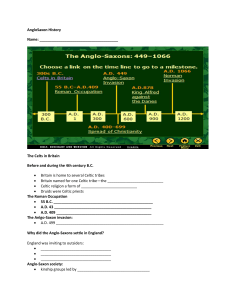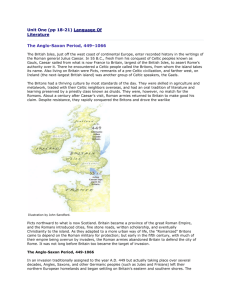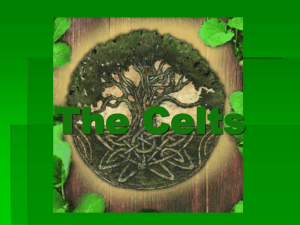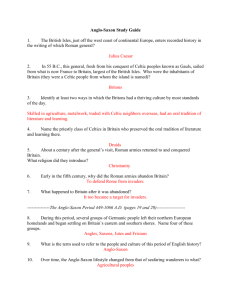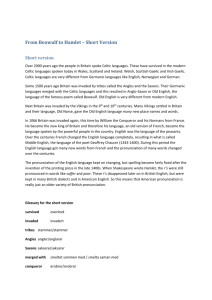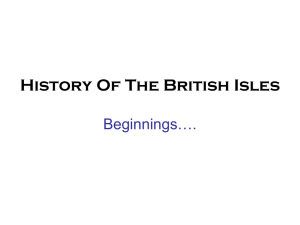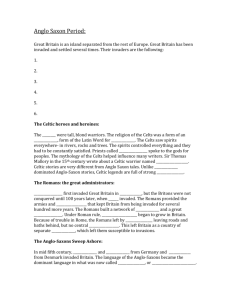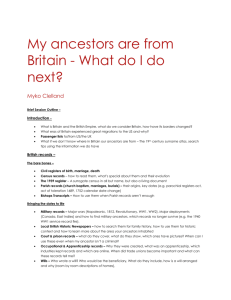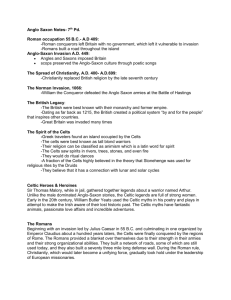Задания для 1-2 курса TASK 1 (15 Qs) Read the following text and
advertisement
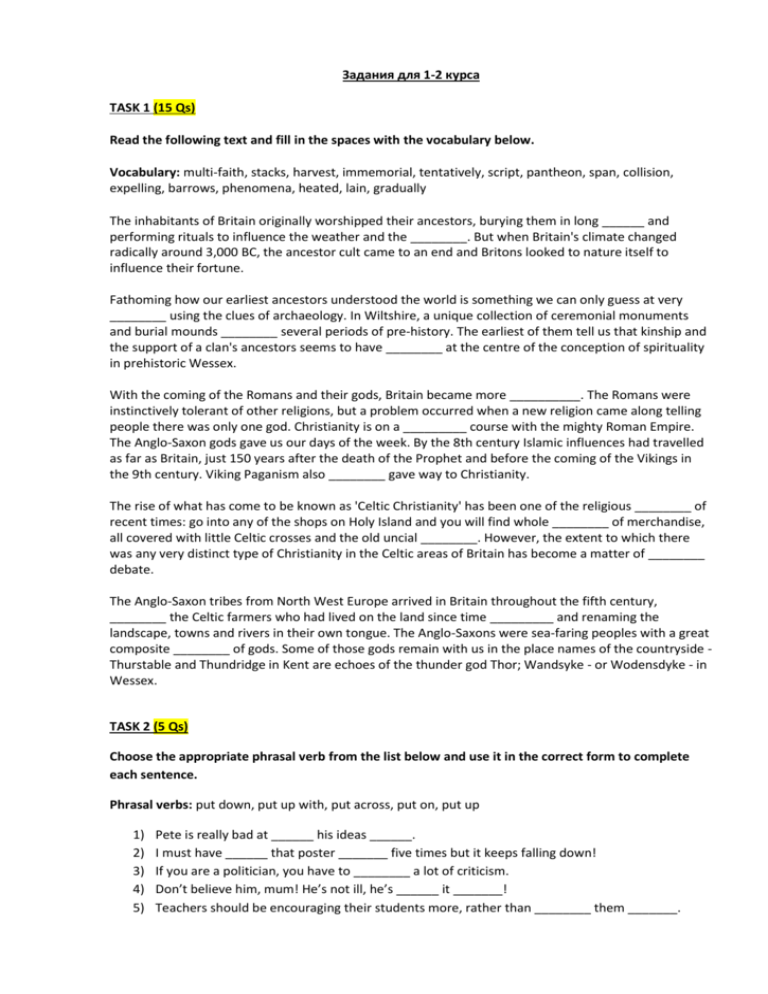
Задания для 1-2 курса TASK 1 (15 Qs) Read the following text and fill in the spaces with the vocabulary below. Vocabulary: multi-faith, stacks, harvest, immemorial, tentatively, script, pantheon, span, collision, expelling, barrows, phenomena, heated, lain, gradually The inhabitants of Britain originally worshipped their ancestors, burying them in long ______ and performing rituals to influence the weather and the ________. But when Britain's climate changed radically around 3,000 BC, the ancestor cult came to an end and Britons looked to nature itself to influence their fortune. Fathoming how our earliest ancestors understood the world is something we can only guess at very ________ using the clues of archaeology. In Wiltshire, a unique collection of ceremonial monuments and burial mounds ________ several periods of pre-history. The earliest of them tell us that kinship and the support of a clan's ancestors seems to have ________ at the centre of the conception of spirituality in prehistoric Wessex. With the coming of the Romans and their gods, Britain became more __________. The Romans were instinctively tolerant of other religions, but a problem occurred when a new religion came along telling people there was only one god. Christianity is on a _________ course with the mighty Roman Empire. The Anglo-Saxon gods gave us our days of the week. By the 8th century Islamic influences had travelled as far as Britain, just 150 years after the death of the Prophet and before the coming of the Vikings in the 9th century. Viking Paganism also ________ gave way to Christianity. The rise of what has come to be known as 'Celtic Christianity' has been one of the religious ________ of recent times: go into any of the shops on Holy Island and you will find whole ________ of merchandise, all covered with little Celtic crosses and the old uncial ________. However, the extent to which there was any very distinct type of Christianity in the Celtic areas of Britain has become a matter of ________ debate. The Anglo-Saxon tribes from North West Europe arrived in Britain throughout the fifth century, ________ the Celtic farmers who had lived on the land since time _________ and renaming the landscape, towns and rivers in their own tongue. The Anglo-Saxons were sea-faring peoples with a great composite ________ of gods. Some of those gods remain with us in the place names of the countryside Thurstable and Thundridge in Kent are echoes of the thunder god Thor; Wandsyke - or Wodensdyke - in Wessex. TASK 2 (5 Qs) Choose the appropriate phrasal verb from the list below and use it in the correct form to complete each sentence. Phrasal verbs: put down, put up with, put across, put on, put up 1) 2) 3) 4) 5) Pete is really bad at ______ his ideas ______. I must have ______ that poster _______ five times but it keeps falling down! If you are a politician, you have to ________ a lot of criticism. Don’t believe him, mum! He’s not ill, he’s ______ it _______! Teachers should be encouraging their students more, rather than ________ them _______. TASK 3 (5Qs) Match these English idioms about love and relationships (1-5) with their definitions (a-e). 1) 2) 3) 4) 5) A rough patch Only have eyes for Go steady Get hitched Have a crush on ___ ___ ___ ___ ___ a) Marry someone b) Have a serious relationship with someone c) A difficult period d) Be attracted to e) Be infatuated with
